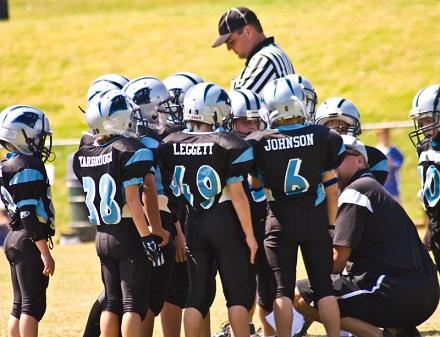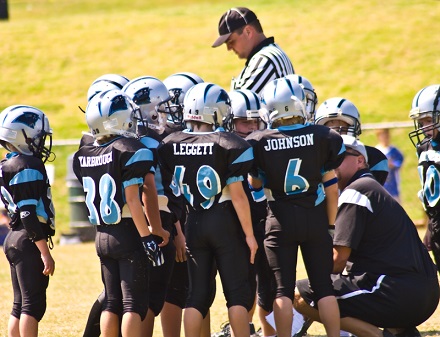

But, say those who wrote the reports, the reasons kids succeed as adults may not be the sports themselves but potential employers’ expectations that those sports have had a good impact on the person being considered for a job. It remains up to the coaches, athletic directors and even event owners to create a culture that fosters those valued traits.
A report out of Cornell University on children’s later success showed that in a study of what current workers expect from potential new hires, ”former student-athletes are expected to possess relatively greater leadership ability, more self-confidence and heightened self-respect, compared to people who didn’t play a varsity high school sport,” according to Kevin M. Kniffin, postdoctoral research associate in the Dyson School of Applied Economics and Management.
And to a degree, he adds, that may be true. “In a study of late-career workers, former student-athletes demonstrated similar characteristics in addition to greater prosocial behavior in their 70s, 80s and 90s.”
Kniffin and co-authors (Mitsuru Shimizu, a Cornell postdoctoral researcher during the study and professor Brian Wansink) wrote “Sports at Work: Anticipated and Persistent Correlates of Participation in High School Athletics.”
Brian Wansink, the John Dyson Professor of Consumer Behavior, says: “Something very special happens on scholastic playing fields and tracks and basketball courts. Student-athletes, whether or not they are captains or leaders of their teams, are exposed to leaders in an environment that rewards transformational leadership. The focus in youth sports is on prosocial traits: respect, trust and confidence. That experience spills over wherever their adult lives take them.”
A second report, this from Eagle Hill Consulting, drilled down into some of the long-term results of sports on adults. Among the findings: 83 percent of team sports athletes say they use their strengths every day at work, as compared to 63 percent of employees who didn’t play team sports. And more than half (56 percent) of team sports athletes said their team enthusiastically responds to change, as compared to 35 percent of employees who didn’t play team sports.
A third report, Sports and Health in America, produced by NPR, the Robert Wood Johnson Foundation and the Harvard T.H. Chan School of Public Health, takes the correlation one step further.
That study found that adults who played sports as children were more likely to play sports, or to exercise in general, as they got older. And, it noted, adults who exercise are more likely to have higher incomes, more education, and tend to be younger than adults who do not exercise.
The study states, “Lower-income adults are less likely to exercise regularly than higher-income adults: 40 percent of lower-income adults (those with household incomes less than $25,000/year) say they exercise on a regular basis, while 64 percent of higher income adults (those with household incomes of at least $75,000/year) say they exercise on a regular basis.”
Regardless of their salary level, most parents encourage their children to play sports – although not surprisingly, those who make less money are more likely to report problems paying for them to do so.
But if the goal is to create better-adjusted, better-paid and better-educated adults, the lessons that sports teaches are best learned when kids are young. An article in Inc. Magazine noted that a good sports program will teach children not just how to work together in search of a win but how to lose, how to lead – and just as importantly, how to respect authority (a lesson not taught if children see arguments with coaches and referees).
Ultimately, event planners can help set the tone that allows student athletes to learn those lessons. By fostering a culture of respect and instituting a zero-tolerance policy with regard to harassment of officials or players, it is possible to set an example of what sports can, and should, be.
In addition, emphasizing chances for athletes to mingle and socialize can provide opportunities to develop friendships. And since the NPR study noted that older adults tended to enjoy sports such as walking, golf, tennis and bowling – all social in nature – hosting youth events off the field of play is laying the groundwork for seeing sports as a valuable networking opportunity later in life.

